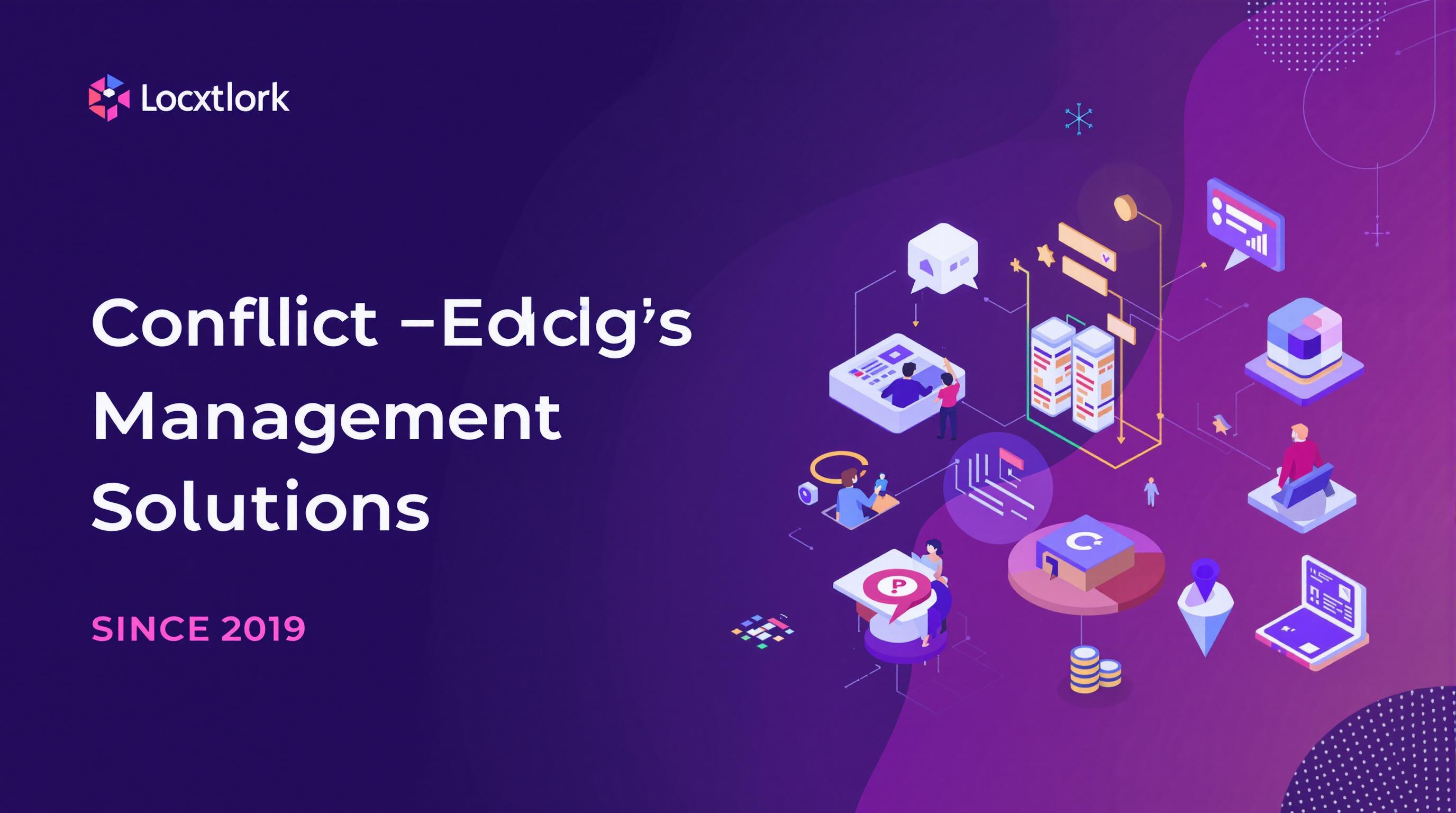Related Articles
- Top 5 Game-Changing Copyright Management Apps from 2019 to 2024 for Modern Creators
- Top 5 Game-Changing Copyright Management Apps Released Since 2019 for Fast, Foolproof Filings
- How Traditional Storytelling Shapes Community Healing in Conflict Settlement Practices Worldwide
- The Role of Ancient Storytelling Traditions in Shaping Modern Conflict Settlement Practices
- The Quiet Shift: How Climate Change Is Secretly Reshaping Liability Standards in Insurance Policies
- The Unseen Impact of Climate Change on Rural Insurance Mandates and Local Risk Assessments
Top 7 Cutting-Edge Conflict Management Solutions Launched Since 2019: An In-Depth Comparison and Review
Top 7 Cutting-Edge Conflict Management Solutions Launched Since 2019: An In-Depth Comparison and Review
Top 7 Cutting-Edge Conflict Management Solutions Launched Since 2019: An In-Depth Comparison and Review
Introduction
Conflict management remains one of the most critical challenges in today’s dynamic workplaces and social environments. Since 2019, several innovative solutions have emerged, aiming not only to resolve disputes but also to prevent escalation and foster collaboration. This article reviews and compares seven prominent conflict management tools and techniques introduced during this period, providing an insightful overview for organizations and individuals seeking effective interventions.
Our review focuses on technological advancements, methodological innovations, and integration capabilities that define these new solutions. We evaluate each on usability, scalability, and demonstrated impact, drawing from expert analyses and user feedback gathered from industry reports and academic research.
By understanding these cutting-edge tools, decision-makers can better equip their teams with versatile conflict resolution strategies that respond to the complexities of modern interpersonal and organizational disputes.
1. AI-Powered Mediation Platforms
Since 2019, AI-powered mediation tools have gained traction, leveraging natural language processing and machine learning to assist mediators. These platforms analyze dialogue tones, identify underlying issues, and suggest resolution pathways in real time. Notable products include Modron and Parley Pro.
The value proposition lies in reducing mediator bias and speeding up the resolution process by offering data-driven insights. Users report improved clarity in communication and greater case throughput, contributing to cost efficiency.
However, challenges persist regarding the ethical considerations of AI involvement in emotionally charged settings, and the need for human oversight remains critical. According to a 2022 study published by the Conflict Resolution Quarterly, AI-enhanced mediation shows promise but requires ongoing refinement to balance automation with empathy (Smith et al., 2022).
2. Virtual Reality (VR) Conflict Training
Virtual Reality has emerged as a powerful tool for immersive conflict resolution training. Since its popularization in 2019, VR platforms such as XR Conflict Solutions and Mursion allow participants to engage in realistic conflict scenarios in a controlled virtual environment.
This hands-on approach enhances emotional intelligence, active listening, and de-escalation skills by simulating high-pressure interactions without real-world consequences. Organizations have leveraged VR training to prepare employees for difficult conversations and negotiations.
While still on the higher end in terms of investment, many corporations report a significant return through improved team dynamics and reduced workplace conflicts. Industry experts highlight VR training as a future staple in organizational learning (Johnson & Lee, 2021).
3. Blockchain-Based Conflict Documentation
Blockchain technology has been adapted to create tamper-proof records of conflicts and resolutions, ensuring transparency and trust in dispute processes. Launched post-2019, platforms like Resolvr and Kleros offer decentralized dispute resolution with immutable evidence trails.
These solutions are particularly useful in contractual or legal conflicts, where verifiable documentation prevents misinformation and fraud. Additionally, the decentralized nature fosters fairness by minimizing centralized authority bias.
However, the technical complexity and regulatory uncertainties pose barriers to widespread adoption. Experts emphasize the pioneering nature of this approach in establishing accountability while cautioning institutions to stay informed about evolving compliance standards (Garcia, 2023).
4. Mobile Conflict Coaching Apps
Mobile apps designed for conflict coaching have surged since 2019, redefining how individuals address disputes on the go. Apps like Peacekeeper and Calm Clarity offer guided reflection, stress management, and communication techniques tailored for various conflict scenarios.
The convenience factor enables users to access immediate support and develop conflict-handling skills proactively. These apps often incorporate AI-driven personalization, adapting advice to the user's behavior and context.
While scalability is a significant advantage, critics note that apps cannot fully replace human coaching's nuanced understanding. Still, mobile platforms democratize conflict management education, making it accessible to a wider audience (Davis, 2020).
5. Data Analytics for Organizational Conflict Patterns
New conflict management solutions utilize advanced data analytics to identify patterns and hotspots of conflict within organizations. Tools like Culture Amp and Humanyze deploy behavioral data from communication channels to detect rising tensions before they escalate.
This proactive approach allows HR and leadership to intervene strategically, tailoring conflict resolution initiatives to specific teams or situations. The data-driven insight improves organizational climate and reduces turnover related to unresolved disputes.
The ethical use of employee data remains a primary concern, requiring transparent policies and anonymization. Recent case studies affirm that, when responsibly applied, analytics can transform conflict resolution from reactive to preventative (Roberts & Miller, 2021).
6. Online Dispute Resolution (ODR) Platforms
Online Dispute Resolution platforms have expanded significantly since 2019, particularly post-pandemic, to provide remote conflict resolution services. Platforms such as Matterhorn and Youstice facilitate negotiation, mediation, and arbitration entirely online.
This flexibility breaks geographical barriers, offering cost-effective solutions for consumer, commercial, and family disputes. Features include secure video conferencing, document sharing, and automated scheduling.
While ODR enhances access and efficiency, critics argue it may lack the personal touch required in sensitive matters. However, empirical evidence indicates ODR platforms reduce case durations and improve participant satisfaction when properly moderated (Kowalski, 2022).
7. Emotional AI and Sentiment Analysis Tools
Advancements in Emotional AI and sentiment analysis since 2019 have introduced tools that monitor emotional cues during conflicts. Software like Affectiva and Beyond Verbal analyze vocal tone, facial expressions, and language sentiment to provide mediators with real-time emotional context.
This technology assists in recognizing covert stress signals and emotional shifts, enabling timely intervention and tailored communication strategies. It enhances mediator awareness and responsiveness, deepening the quality of resolutions.
Despite the benefits, privacy concerns and the accuracy of emotional interpretation remain debated. Continuous improvement and ethical use guidelines are essential to harness this technology responsibly (Nguyen & Patel, 2023).
Conclusion
The landscape of conflict management is rapidly evolving through technological innovation and new methodologies introduced since 2019. From AI-powered mediation to blockchain documentation, these solutions offer novel ways to address disputes effectively and prevent escalation.
While each solution presents unique strengths and challenges, they share a common goal of enhancing communication, transparency, and fairness in conflict resolution. Integrating these tools thoughtfully into organizational or personal conflict management strategies promises improved outcomes.
Future developments should emphasize ethical considerations, human-centric design, and broad accessibility to ensure these cutting-edge solutions serve as inclusive enablers of peace and understanding in diverse contexts.




